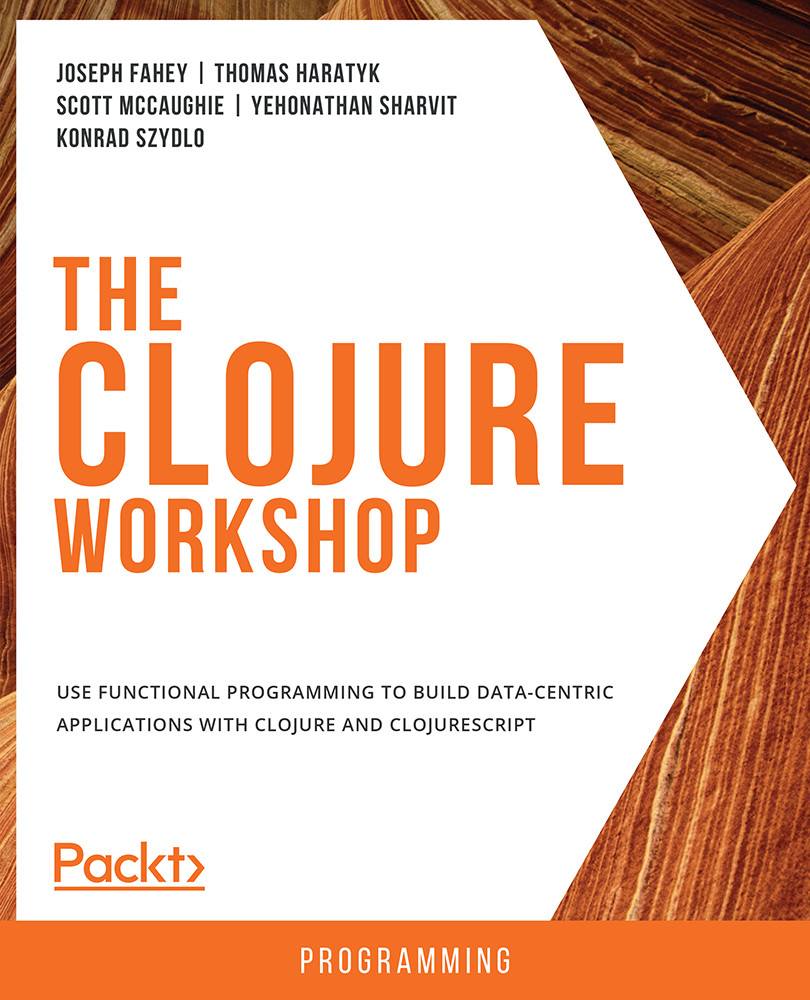-
Book Overview & Buying

-
Table Of Contents

The Clojure Workshop
By :

The Clojure Workshop
By:
Overview of this book
 Free Chapter
Free Chapter
 Sign In
Start Free Trial
Sign In
Start Free Trial


 Free Chapter
Free Chapter
In this chapter, we have looked at how to use two of Clojure's most important and useful functions for handling sequential data. From a practical point of view, you have seen how to use map and filter, as well as some patterns and idioms for accomplishing common tasks and avoiding some common problems. You are starting to build your mental toolkit for working with collections.
Working with map and filter means we are working with lazy sequences, and so this chapter explored some of the ins and outs of lazy evaluation, which is one of Clojure's fundamental building blocks.
The techniques for reading and parsing files, extracting, querying, and manipulating data will also be useful right away as we continue to build on these data-handling techniques in the next chapter.
